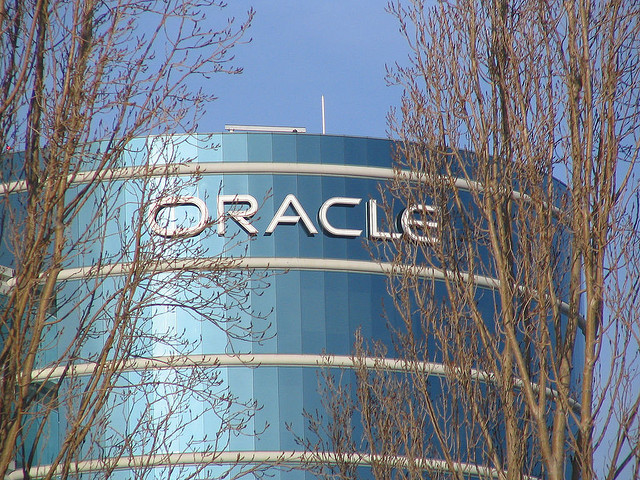
Attempting to rescue itself from last year's thorough courtroom smackdown, Oracle has filed a 77-page appeal brief [PDF] arguing that Java APIs are indeed copyrightable, contrary to a federal judge's ruling.
Google didn't copy the code from actual Java functions when it created Android, but it did use what Oracle calls "declaring code" from declarations, headers, signatures, and names of functions. Oracle claimed this amounted to copying the "structure, sequence, and organization" of Java.
US District Judge William Alsup, who oversaw the case, disagreed. The code Google used was "a utilitarian and functional set of symbols, each to carry out a pre-assigned function." Declarations and headers "must be identical" to carry out the function, and "duplication of the command structure is necessary for interoperability," wrote Alsup.
Now, Oracle's trying very hard to get that finding overturned. In 2009, the company paid more than $7 billion for Sun Microsystems, which gave it ownership of Java's patents and copyrights. The company's top brass very much believes that the intellectual property should entitle it to serious compensation from Google, and it initiated discussions with the search giant shortly after the purchase, ultimately filing suit in 2010. The company's initial damage demands went up to $6 billion, but that was whittled way down by the judge.
Oracle kicks off its legal arguments with the tale of a mythical writer, Ann Droid (get it?):
Ann Droid wants to publish a bestseller. So she sits down with an advance copy of Harry Potter and the Order of the Phoenix—the fifth book—and proceeds to transcribe. She verbatim copies all the chapter titles—from Chapter 1 (“Dudley Demented”) to Chapter 38 (“The Second War Begins”). She copies verbatim the topic sentences of each paragraph, starting from the first (highly descriptive) one and continuing, in order, to the last, simple one (“Harry nodded.”). She then paraphrases the rest of each paragraph. She rushes the competing version to press before the original under the title: Ann Droid’s Harry Potter 5.0. The knockoff flies off the shelves.
J.K. Rowling sues for copyright infringement. Ann’s defenses: “But I wrote most of the words from scratch. Besides, this was fair use, because I copied only the portions necessary to tap into the Harry Potter fan base.”
Obviously, the defenses would fail.
Defendant Google Inc. has copied a blockbuster literary work just as surely, and as improperly, as Ann Droid—and has offered the same defenses.
Oracle has a huge hill to climb to win this appeal, because Google essentially won this case twice. The jury found Google had infringed but split on whether or not its use of declaring code was "fair use." Then it won a more resounding victory when Alsup ruled that APIs can't be copyrighted at all. Oracle's lawyers will now have to convince the appeals court that, first, APIs can be copyrighted at all, and second, that Google has no fair use defense, or at least should go through a second trial on that issue.
On the API front, Oracle notes that under US copyright law, the threshold for copyright protection is low. "Any 'creative spark' counts, 'no matter how crude [or] humble,'" write Oracle's lawyers, citing the Feist v. Rural case. And the organization of the Java software packages is a creative expression; its "structure, sequence, and organization" would be protected "even if Google hadn't copied a single line of code, but all the more so because it copied 7000." (The 7,000 lines refers to the declaring code. Google didn't copy any implementing code with one tiny exception: a 9-line accident that Alsup called "innocuous and overblown by Oracle.")
As for fair use, Oracle writes that Google's use of the declaring code was commercially motivated and was "the only code with any relevance to programmers," so it can't possibly be fair. Oracle lawyers cite a case in which an article in The Nation was found to infringe because it took a few hundred words from Nixon's memoir, despite the fact that it wrote 87 percent of its own article. Further weighing against fair use is the fact that Google "damaged the value of the Java platform in the smartphone market," argues Oracle.
This copyright appeal has an unusual setting. Because the original case involved patents, the appeal is being heard by the US Court of Appeals for the Federal Circuit, which oversees all patent appeals. That continues to be the case, even though Oracle dropped the patent portion of its case after losing. For the copyright issues that are in dispute, the Federal Circuit will apply the case law of the 9th Circuit, since the case was argued in San Francisco, near both companies' headquarters.
Google's appeal brief is due at the end of March.
reader comments
121